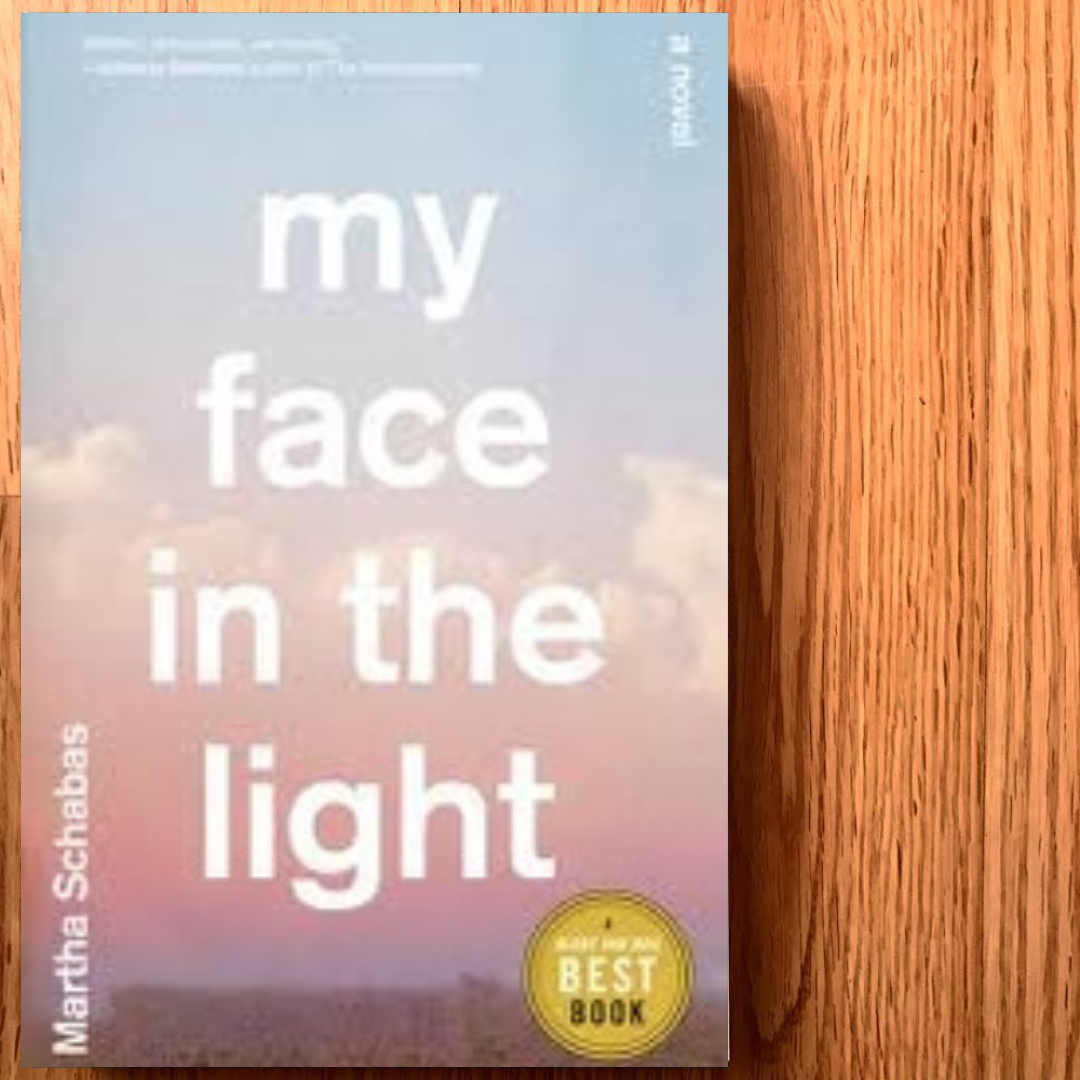By Carmen Lebar
Content warning: cancer, physical abuse, suicide attempt
My Face in the Light by Martha Schabas is a literary fiction novel that tells the story of Justine, an actor struggling in her late 20s. Justine is fed up with living in Toronto, unsure about her marriage, and estranged from her famous artist mother. Fortunately for her, she books an audition for an apprenticeship in London, England. However, her audition fails and Justine is on her train back to the airport when she meets an older man. He gives her an odd proposition: she can live in his apartment building and work for him. Fast forward a few weeks, and Justine is leaving for London without her husband, citing her need for time apart. Justine’s story is a downward spiral of her trying to navigate her life at this moment, as well as how she sees herself. Her sense of self is highly connected to her mother and husband, and it’s this juxtaposition to others that makes Justine’s story so captivating.
Justine met her husband, Elias, after high school, and during a time when there was a lot of tension and uncertainty with her mother. While the beginning of their marriage was great, Justine can’t help but feel inferior to her husband. She constantly compares herself to him and focuses on what she lacks. In London, as Justine tries to better understand her feelings toward their relationship and her husband, she also starts to look within herself. I enjoyed reading Schabas’s ability to write a complicated love story that didn’t focus on fading love or infidelity. The focus on Justine’s insecurity and uncertainty was in depth, written in an almost stream-of-consciousness prose. Schabas writes Justine’s marriage with a lot of nuance and care, leaving a very believable and touching story. Schabas utilizes the same care when writing about Justine’s relationship with her mother.
After her mother gained popularity in the art world, Justine had to adapt to her mother’s changing lifestyle — including traveling, moving, and sexual exploits. The closest she felt to her mother was when she was dating a man named Aaron in London, someone Justine tries to find later in life. It was intriguing to read Justine’s thoughts about her mother, and herself, in different parts of her life and how her opinions changed with time. Schabas intricately writes about how people’s identities and peace of mind must be protected. Near the end of the novel, her mother is dealing with a life changing situation that she struggles to cope with. This causes Justine to either be there for her mother, or distance herself. Schabas demonstrates how Justine’s proximity to her mother is greatly connected to how people, and herself, perceive her.
My Face in the Light is a story of getting lost in life, but not necessarily finding one’s self. It offers another solution: the importance of removing oneself from a situation. Removing herself from Toronto, Justine can see things more clearly and assess what she should do. This novel doesn’t try to solve all of Justine’s problems, but it shows the process in which she makes decisions in her life. The only part of the novel I wish there was more clarity on is its present time period. Justine’s present story seems to take place in the early 2010s, but it’s never explicitly said in the novel. However, I think the story meanders from past to present seamlessly, as if the reader is reading Justine’s current thoughts. I would recommend My Face in the Light to literary fiction readers and those who enjoy stories about complex mother-daughter relationships. It’s full of beautiful prose and is a great story to get lost in.
Thank you, Penguin Random House Canada, for the complimentary copy in exchange for an honest review.

